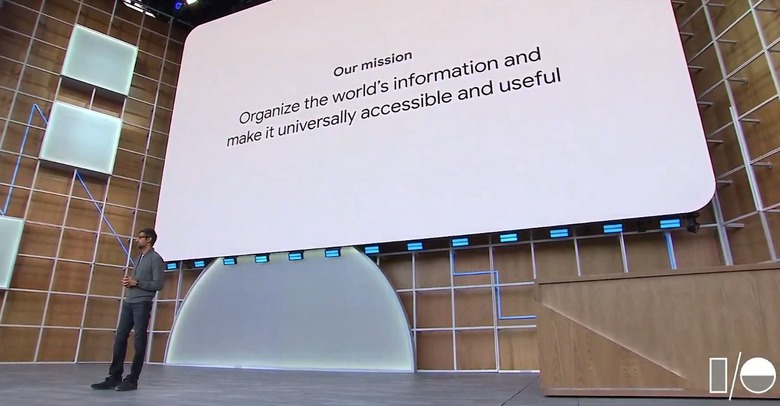Surprise: The 'AI Bot' People Talk To On Google Duplex Calls Is Sometimes Actually A Person
When Google unveiled Google Duplex last year at I/O 2018, the brand new Assistant feature looked terrific. It was the kind of futuristic technology nobody else had. With a simple voice command, you could instruct the Assistant to make restaurant reservations for you by placing a phone call using an AI bot. But soon after that keynote, it became clear that Duplex is somewhat creepy, as Google failed to identify the robocall to the other person. It was also kind of disingenuous, since the entire demo wasn't live.
Google dealt with those issues at the time and Google Duplex deployment continued, culminating with this year's I/O announcement that the feature will be available in 44 states. Also, Google said that Duplex is getting similar functionality for booking reservations on the web. But a brand new report reveals additional details that were previously not known about Duplex, which brings the creepy back. It turns out that Google employees are actively involved in making many of these Duplex calls.
A report from The New York Times reveals that about 25% of calls placed through Duplex started with a human. Beyond that, 15% of calls that started off with the Duplex AI bot had a human intervene at some point.
The whole point of using the Assistant to make restaurant reservation is to eliminate the human side of things. That's why Google Duplex appeared to be so amazing in the first place. Having humans involved in the whole thing is where things get strange. Yes, maybe Duplex needs human oversight and the best way to train AI is by having it work with a lot of examples to learn from. But Google never really mentioned this human aspect of Google Duplex, which sort of ruins the magic of it all. Yet again, it's somewhat disingenuous.
Also, there's user privacy to take into account. A human interacting with a restaurant on your behalf is different from a computer doing it, as the human is also let in on the booking information. It may seem trivial, but where does one agree to involve a Googler in setting up one's dinner plans?
Google does say on its support pages that Duplex calls are recorded for quality assurance, which means someone may listen to your reservations:
If the customer wants to book an appointment, the Assistant will confirm specific details like the customer's preferred time, type of service, or size of party. Once this information is confirmed, the Assistant will try to book an appointment with your business by using an online booking partner (if available) or by calling your business using the automated voice-calling technology Duplex (calls are recorded for quality assurance).
Also, Google has a tiny note that a manual operator might start calls in the frequently asked questions section, although it's hardly enough (emphasis ours):
At the start of the call, you'll hear the reason for the call and that the call is from Google. You can expect the call to come from an automated system or, in some cases, a manual operator.
Google Duplex is clearly a far less polished product that Google led us to believe a year ago. Also, considering its renewed interest in protecting the user's privacy, Google should do a much better job explaining what goes on behind the scenes of a Google Duplex call when it comes to your privacy. The full Times report, complete with examples that explain what a human-made Google Duplex call looks like, is available at this link.
